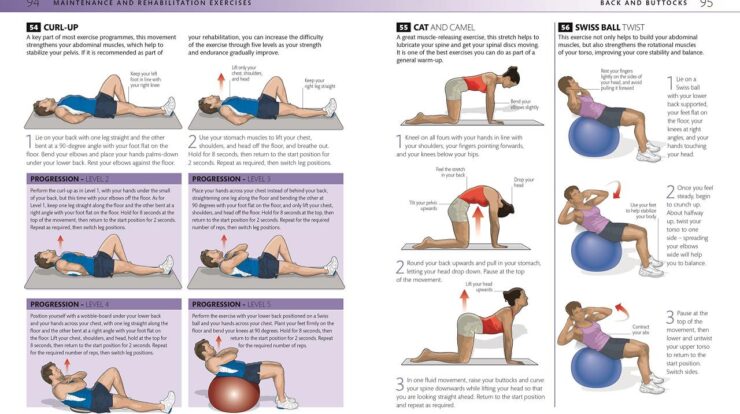
How to cure gum disease without a dentist – Gum disease, a common dental issue, can be a pain in the neck. But what if we told you there are ways to cure it without breaking the bank on expensive dentist visits? Get ready to dive into the world of natural remedies, over-the-counter treatments, and lifestyle changes that will leave your gums healthy and your smile shining bright.
From salt water rinses to tea tree oil and baking soda, we’ve got a treasure trove of home remedies that will make your gums dance with joy. Plus, we’ll help you navigate the world of mouthwashes, gels, and antibiotics so you can pick the perfect over-the-counter solution for your gum woes.
Home Remedies for Gum Disease

Yo, gum disease is a drag, but don’t sweat it. There are some dope home remedies that can help you keep your gums healthy without breaking the bank or visiting the dentist.
Salt Water Rinses, How to cure gum disease without a dentist
Salt water rinses are OG. They’re like a natural mouthwash that kills germs and reduces inflammation. Just mix a teaspoon of salt in a cup of warm water and swish it around your mouth for a few minutes.
Tea Tree Oil
Tea tree oil is a natural antiseptic and antibacterial. Add a few drops to your toothpaste or mix it with coconut oil and apply it to your gums.
Baking Soda
Baking soda is a natural abrasive that can help remove plaque and bacteria. Make a paste by mixing baking soda with water and apply it to your gums. Leave it on for a few minutes, then rinse your mouth thoroughly.
Over-the-Counter Treatments: How To Cure Gum Disease Without A Dentist
Yo, gum disease can be a pain in the mouth, but don’t worry, there’s help at the drugstore. Check out these over-the-counter (OTC) options that can help you fight the good fight against gum disease.
First, let’s talk mouthwash. There are a bunch of different types out there, so how do you choose the right one? If your gums are just a little bit irritated, a regular mouthwash with fluoride should do the trick. But if you’ve got some serious gum disease going on, you’ll want to look for a mouthwash that contains chlorhexidine, which is a strong antibacterial agent.
Next up, gels. OTC gels usually contain the same active ingredients as mouthwashes, but they’re thicker, so they can stick to your gums for longer. This can give them a little extra punch in fighting gum disease.
Finally, antibiotics. If your gum disease is really bad, your dentist might recommend OTC antibiotics. These can help kill the bacteria that are causing the infection.
Choosing the Right Treatment
So, which OTC treatment is right for you? It all depends on how bad your gum disease is. If it’s just starting out, a regular mouthwash might be enough. But if you’ve got some serious gum disease going on, you’ll want to talk to your dentist about stronger options.
Lifestyle Changes for Gum Health

Gum disease is a common problem that can lead to serious health issues if left untreated. While there are many ways to treat gum disease, some lifestyle changes can help prevent and even reverse the condition.
Oral Hygiene Habits
Good oral hygiene is essential for gum health. Brush your teeth at least twice a day with a soft-bristled toothbrush and fluoride toothpaste. Floss once a day to remove plaque and bacteria from between your teeth.
Healthy Diet
Eating a healthy diet is important for overall health, including gum health. Fruits, vegetables, and whole grains are all good sources of vitamins and minerals that help keep your gums healthy. Avoid sugary foods and drinks, as these can contribute to plaque buildup.
Quit Smoking
Smoking is a major risk factor for gum disease. The chemicals in cigarettes damage the gums and make them more susceptible to infection. Quitting smoking is one of the best things you can do for your gum health.
Advanced Treatment Options
Advanced gum disease may require more intensive treatments beyond home remedies or over-the-counter options. Surgical and non-surgical procedures can help control the infection, restore gum health, and prevent further damage to the teeth and surrounding tissues.
Non-Surgical Procedures
- Scaling and Root Planing:A deep cleaning procedure that removes plaque and tartar from the tooth surfaces and below the gum line, smoothing out the root surfaces to discourage bacteria buildup.
- Laser Therapy:Uses a laser to kill bacteria and remove infected gum tissue, promoting healing and reducing inflammation.
- Antimicrobial Therapy:Antibiotics or antimicrobial agents may be prescribed to combat bacterial infections and prevent their spread.
Surgical Procedures
- Flap Surgery:The gum tissue is lifted back to expose the root surfaces, allowing for thorough cleaning and removal of diseased tissue. The gum is then repositioned and secured with stitches.
- Bone Grafting:In cases where gum disease has damaged the underlying bone, bone grafting may be necessary to restore the bone structure and provide support for the teeth.
- Tissue Regeneration:Surgical techniques can stimulate the growth of new gum tissue, replacing lost tissue and improving the overall health of the gums.
Recovery and Complications
Recovery time after advanced gum disease treatment varies depending on the procedure performed. Non-surgical treatments typically involve less discomfort and a shorter recovery period, while surgical procedures may require several weeks or months for the gums to heal fully.
Potential complications include infection, bleeding, swelling, and discomfort. Proper post-operative care, including good oral hygiene and following the dentist’s instructions, is crucial to minimize complications and ensure a successful outcome.
Prevention and Maintenance

Gum disease is a serious condition that can lead to tooth loss. Fortunately, it’s preventable and manageable with proper care.
Regular dental checkups and cleanings are essential for preventing gum disease. Your dentist can remove plaque and tartar buildup, which can irritate your gums and cause inflammation. They can also check for signs of gum disease and provide early treatment if necessary.
Early Signs of Gum Disease
- Red, swollen, or bleeding gums
- Receding gums
- Loose teeth
- Bad breath
- Pus between your teeth and gums
If you notice any of these signs, see your dentist right away. Early treatment can help prevent gum disease from worsening.
Last Word
So, there you have it, folks! Whether you’re looking to prevent gum disease or cure it naturally, this guide has got you covered. Remember, a healthy smile starts with healthy gums, so take charge of your oral hygiene and give your gums the love they deserve.
Spread the word, share the knowledge, and let’s conquer gum disease together!
FAQ Explained
Can I cure gum disease without going to the dentist?
Yes, there are home remedies and over-the-counter treatments that can help improve gum health and reduce symptoms of gum disease. However, it’s important to note that these treatments may not be effective for advanced cases and regular dental checkups are still recommended.
How often should I rinse my mouth with salt water?
Rinsing your mouth with salt water 2-3 times a day can help reduce inflammation and promote gum healing. Make sure to use warm water and dissolve 1/2 teaspoon of salt in 8 ounces of water.
Is tea tree oil safe to use on gums?
Yes, tea tree oil has antibacterial and anti-inflammatory properties that can help improve gum health. Dilute 2-3 drops of tea tree oil in 1 tablespoon of coconut oil or water before applying it to the affected area.





